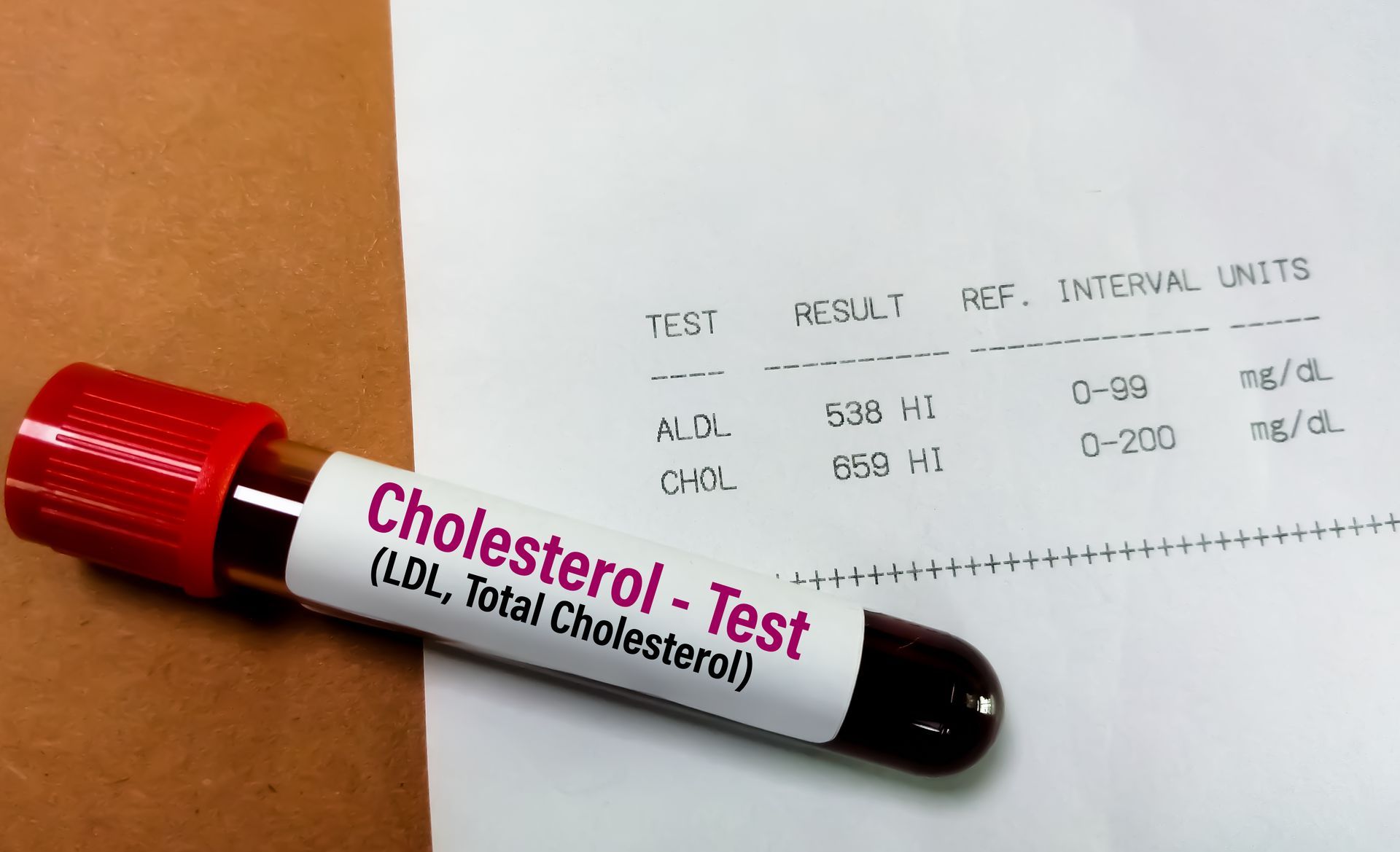Our Location
Elige tu idioma:
Managing Type 2 Diabetes in Seniors: Effective Tips and Strategies

Many people don’t realize that Type 1 and Type 2 diabetes are different and end up using misguided treatments or practicing self-care methods. As discussed in our previous blog, Type 1 and 2 diabetes have unique mechanisms and require different treatment approaches.
This distinction is critical as seniors face unique challenges in managing Type 2 diabetes, with age being a significant risk factor for developing the condition. This underscores the need for practical strategies such as making dietary changes and emphasizing the importance of regular monitoring for Type 2 diabetes in older adults.
At
Ocana Medical Center, under the guidance of Dr. Antonio L. Ocana, we’re committed to equipping you with the tools and insights needed to manage Type 2 diabetes (T2D) effectively.
Get Your T2D Care Plan Tailored for You!
Understanding Type 2 Diabetes in Seniors
Type 2 diabetes is a condition that significantly affects the lives of seniors, with 33% of adults aged 65 years or older living with diabetes, according to the CDC.
T2D occurs when your body cannot use sugar properly, causing higher blood sugar levels. Elevated glucose levels usually happen because your body becomes less responsive to insulin, a hormone that helps transfer sugar (glucose) from your bloodstream to your cells for energy.
Over time, your body might also produce less insulin. This hormone is essential for regulating the levels of sugar in your blood. When your body doesn't make enough insulin or can't use it well, sugar lingers in your blood instead of being used by your cells, resulting in increased blood sugar levels. Persistently high blood sugar levels can severely impact your organs and overall health.
Unique Considerations for T2D Management
Managing Type 2 diabetes in older adults requires special attention and care. After knowing the differences between Type 1 and Type 2 diabetes, seniors and caregivers should consider the risks of complications when discussing effective management with their physicians.
Here are some key points to keep in mind:
- Focus on overall health: Insulin resistance (when cells become less responsive to insulin) can lead to higher blood pressure and cholesterol levels. So, to manage diabetes and overall wellness, you must also monitor these other conditions.
- Staying active: While physical activity levels might change, finding enjoyable ways to stay active, such as walking or gentle exercises, can significantly help manage blood sugar levels and boost your mood.
- Balanced nutrition: Eating well is crucial at any age. Enjoy a medley of nutritious foods, and keep in mind that even small changes can make a big difference in managing diabetes.
- Medication awareness: It's common to take several medications. Ensuring they all work well together is crucial. Regular check-ups with your provider guarantee your treatments are as effective as possible in managing T2D.
- Cognitive health: Keeping your mind active is as important as physical health. Activities like reading, puzzles, and socializing can help maintain cognitive function and make managing diabetes easier.
These factors underscore the importance of a comprehensive approach to managing Type 2 diabetes in older adults. At Ocana Medical Center, we offer
personalized care plans tailored to match your lifestyle needs and ensure you can lead a confident, healthy, and fulfilling life.
Key Strategies for Managing Type 2 Diabetes in Seniors
Recognizing the symptoms of diabetes in older adults is crucial for early diagnosis, but it doesn't end there. Collaboration is also critical to managing diabetes efficiently. This involves closely cooperating with your provider to make dietary adjustments, improve medication adherence, and monitor your progress.
Here are some essential tactics to keep in mind.
1. Managing portion sizes helps prevent overeating and keeps blood sugar levels stable. Use a measuring cup to gauge portion sizes accurately.
2. Opt for low-impact exercises like walking, swimming, or cycling. Unlike other physical activities, these are gentle on the joints and match most seniors' fitness levels.
3. Maintain a log of your medications, including doses and times. This tip can help you stay organized and ensure you don't miss any doses.
Monitoring Practices

Regular blood sugar monitoring is a critical component for effective diabetes management, particularly for older adults. It allows for early detection of blood sugar fluctuations, empowering you to take proactive steps, personalize your management plan, and prevent complications.
Monitoring also enhances communication with your care team, so when you get diabetes care management tools (e.g., continuous glucose monitoring or CGMs), be sure to request adequate instruction. This will enable you to use and incorporate the tools into your everyday schedule without hassle.
Lifestyle Modifications
More than simply taking medication, Type 2 diabetes management is a holistic strategy that includes making lifestyle adjustments, particularly in sleep and stress.
Stress Management
Consider the following stress management strategies:
- Mindfulness: Stress causes the body to produce cortisol, a hormone that can raise sugar levels in the blood. Mindfulness and relaxation exercises help lower cortisol and lead to more stable blood sugar levels.
- Physical activity: Stress can make your body less responsive to insulin, worsening blood sugar control. Ensuring regular physical activity promotes the production of hormones that enhance insulin sensitivity.
Sleep Hygiene
Getting adequate sleep is crucial for managing diabetes, especially for older adults. Here are some key points to consider:
- Sleep environment: Maintain a peaceful, dim, and serene atmosphere in your bedroom for a comfortable sleep environment. Consider purchasing a cozy mattress and pillows to promote a restful night's sleep.
- Avoid stimulants: Steer clear of caffeine and nicotine near bedtime, as they may disrupt your ability to initiate sleep.
- Limit screen time: Limit your screen time (TV, phones, tablets) to no more than an hour before going to bed, as the blue light from screens can disrupt your sleep pattern.
Tailored Resources
Educational resources and support groups are valuable for seniors with Type 2 diabetes and their caregivers. These resources not only boost their confidence in dealing with T2D but have also been shown to effectively improve their clinical outcomes (e.g., blood glucose levels) and behavioral goals (e.g., dietary habits).
Discover resources that fit your needs from this short list:
Diabetes Risk Test
Take a quick 60-second Type 2 diabetes risk assessment offered by the American Diabetes Association in English and Spanish.
Senior Health and Diabetes Guide
Check out this informative patient guide by the Endocrine Society. It's filled with valuable insights based on the medical society's latest clinical practice guidelines.
Local Support
Need all diabetes types explained? For follow-up questions about you or your loved ones, email info@ocanamedicalcenter.com.
Managing Diabetes Doesn’t Have to Be a Solo Journey
Living with Type 2 diabetes as an older adult can present challenges, but you don't have to face it alone. By adopting key strategies and self-care practices, making lifestyle changes, and seeking support from experts and your community, you can effectively manage T2D and enjoy a fulfilling life.
At Ocana Medical Center, we're here to support you every step of the way! Our diabetes care plans are designed to help you achieve optimal health while effectively managing your condition. Our recognition by the NCQA Diabetes Recognition Program reflects the exceptional diabetes care we proudly offer to our seniors, including you.
Call (813) 968-8314 today to schedule your diabetes support appointment.
Choose Expert Diabetes Care
“Respect. Compassion. Quality. Integrity. These are the values on which Ocana Medical Center was built. Our aim isn’t just to treat you today. We hope to earn your trust and be your healthcare provider for life.”
©2023 Ocana Medical Group, Inc.
USEFUL LINKS
GET IN TOUCH
Call Us Today
Send us Email
Our Location
Ocana Medical Center | All Rights Reserved.












